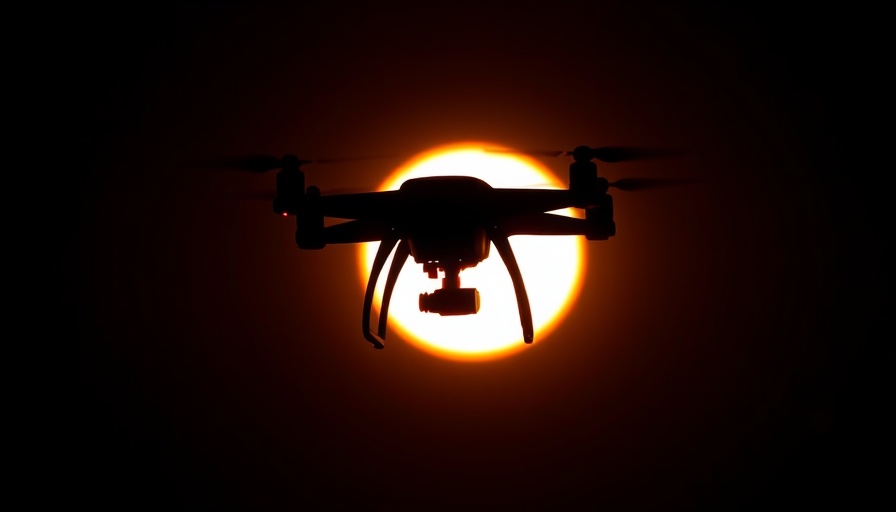
Understanding Taiwan’s Urgent Drone Development
As global conflicts evolve, unmanned aerial vehicles (UAVs) have become indispensable assets in warfare. Taiwan, situated at a strategic crossroads with an escalating tension with China, is urgently trying to build its domestic drone industry. The clock is ticking, with military analysts warning that Taiwan could face an invasion by 2027.
The Race Against Time: Taiwan’s Production Limitations
Despite its ambitious goal of manufacturing 180,000 drones annually by 2028, Taiwan managed to produce less than 10,000 last year. The challenges contributing to this lag are multifaceted, as revealed by a report from the Research Institute for Democracy, Society, and Emerging Technology (DSET). Key issues such as high production costs, insufficient local procurement, and limited foreign orders hinder Taiwan’s capacity to scale up its production in face of an impending threat.
The Reality of Military Threats
The specter of conflict looms large over Taiwan as Chinese military modernization progresses. The island’s officials warn that an invasion could occur sooner than anticipated, underscoring the pressure for Taiwan to accelerate its drone production capabilities. Military strategies suggest that sophisticated drone technology could pivot the balance of power during a potential conflict, turning the Taiwan Strait into a defensible front.
How Drones Could Change the Defense Landscape
In modern military engagements, drones serve not merely as reconnaissance tools but as vital parts of offensive operations. While drone swarms can overwhelm enemy defenses, they can also perform critical defensive roles. Taiwan's forward-thinking strategy includes deploying these UAVs not just to intercept threats but to create a barrier against Chinese advancements, a thought echoed by military strategists.
The Path Forward: Government and Industry Collaboration
To bridge the gap between its current production and future goals, Taiwan’s government has established initiatives like the Drone National Team, aimed at fostering collaboration between the public and private sectors. Drawing from the lessons seen in Ukraine, Taiwan hopes to enhance its technological capabilities in UAV development swiftly.
Cultural Significance: The Need for Preparedness
This rush to develop drones does not solely stem from military necessity; it resonates deeply within Taiwanese society which values sovereignty and self-defense. With the prospects of an aggressive takeover looming, ensuring national security has become a coherent rallying point across various demographics in Taiwan.
Analogies from Other Global Conflicts
Looking internationally, conflicts such as those in Ukraine and Nagorno-Karabakh showcase the effective use of drones. These examples highlight how rapidly and effectively such technologies can alter conflict dynamics. Taiwan’s potential reliance on similar innovations positions them to deter aggression through advanced combat systems, ensuring that their land and airspace remains uncompromised.
Future Perspectives: What Lies Ahead for Taiwan
The future of Taiwan’s drone industry hinges on overcoming logistical and financial barriers. With both national pride and pressing security concerns at stake, the island must navigate partnerships and enhance domestic capacities. The more effectively Taiwan can transition from a nascent drone sector to a leading production powerhouse, the better positioned it will be in the face of potential threats.
Common Misconceptions About Drone Warfare
Many people assume that drones are merely tools of surveillance or high-tech weaponry without understanding their multifaceted roles in modern warfare. Unlike traditional combat, drone operations can provide real-time intelligence, support coordination, and even assist in humanitarian efforts during crises, breaking the stereotypical narrative associated with military drones.
Conclusion: The Urgency of Awareness
As Taiwan embarks on this critical journey to fortify its drone capabilities, understanding the nuances of UAV technology and its implications for security is more essential than ever. While the stakes rise, informed citizens can contribute to a broader dialogue about what defense means in the contemporary world. For those interested in the intersection of technology and security, staying abreast of Taiwan's developments will provide valuable insights into how nations respond to the rapidly changing landscape of military engagement.
 Add Row
Add Row  Add
Add 




Write A Comment